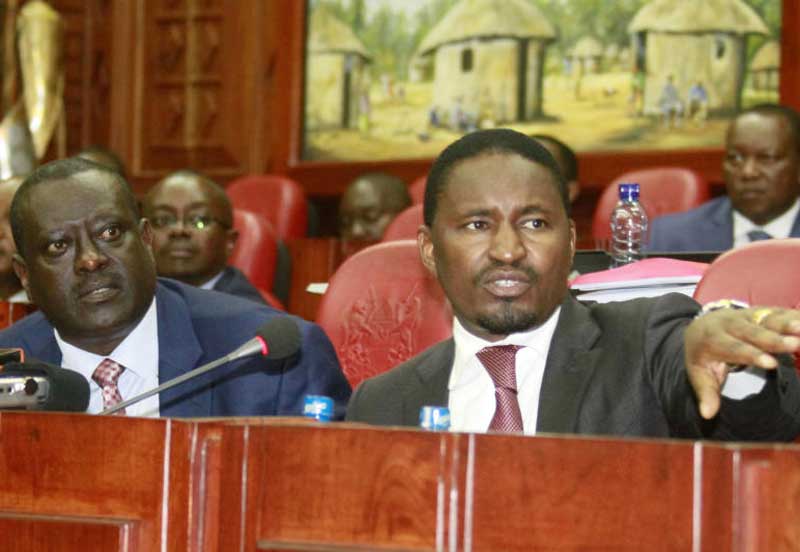×
The Standard e-Paper
Smart Minds Choose Us

Deputy President William Ruto's allies yesterday dragged the Kenyatta family into the raging sugar scandal.
Aldai MP Cornelius Serem stirred a heated debate when he named a company associated with President Uhuru Kenyattta’s younger brother during the proceedings of a joint House committee investigating contraband sugar.